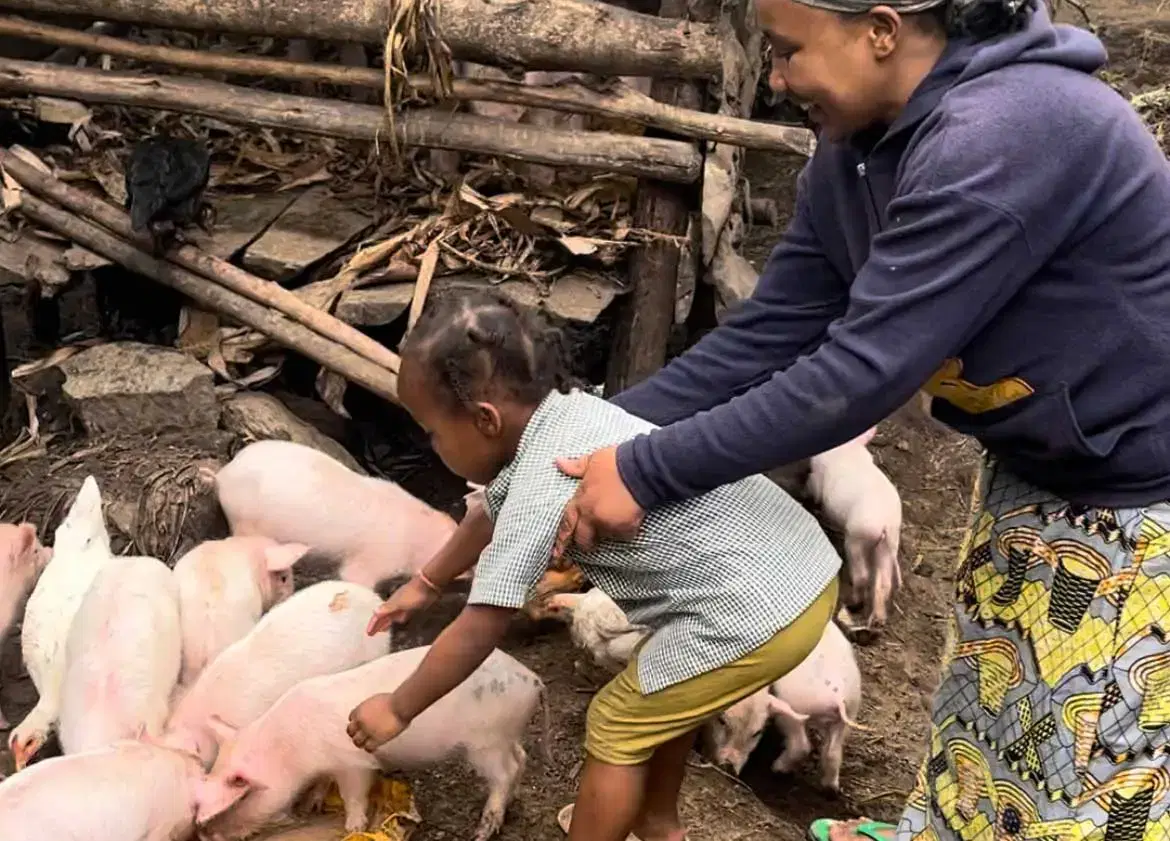Rwanda, Huye and Bugesera
January 2025 – December 2026
Funding Partner: Foundation Pro Victimis
Local Partner: Chance for Childhood
Why is the project needed?
In Rwanda, children with disabilities and their families face not only logistical difficulties in accessing medical care but also social isolation due to the stigma around disability. Many parents, especially those who are the sole caregivers, are left without the support they need to care for their children. The Big Pig Project provides a sustainable solution by helping families increase their income through pig farming, enabling them to meet their children’s medical, nutritional, and educational needs. The project also helps break down the stigma by fostering greater inclusion within communities.
About the Project
In rural Rwanda, children with disabilities often face extreme challenges in getting the care they need. Travelling to medical appointments can be difficult, and families often experience isolation and stigma from their communities. Many parents are left to care for their children with little or no support. This is where our Big Pig Project steps in, providing essential help to families to improve their livelihoods and care for their children with disabilities.
Through the project, 470 families in Huye and Bugesera will be introduced to pig farming. This initiative helps families increase their income, cater to their children’s medical and educational needs, and foster inclusion within their communities. Over the course of 24 months (January 2025 – December 2026), the project will benefit 470 children with disabilities and their siblings by improving their well-being and supporting their families. The project is implemented by Chance for Childhood Rwanda, an NGO that has been working in Rwanda since 2009, focusing on inclusive education, early childhood development, and the rights of children with disabilities.
Goals and Objectives
- 470 families will be economically empowered to meet their children’s basic needs.
- 180 children with disabilities will be enrolled in school and regularly attending
- 70% of children with disabilities will be increasingly included in family and community life.
- 25 parent support groups will begin the process of becoming a registered cooperative
How will we do it
Before families receive pigs, they participate in a 5-day training program covering the basics of pig farming. The training includes:
- 470 families will be economically empowered to meet their children’s basic needs.
- 180 children with disabilities will be enrolled in school and regularly attending
- 70% of children with disabilities will be increasingly included in family and community life.
- 25 parent support groups will begin the process of becoming a registered cooperative
- Pig distribution and the pig rotation system
Ongoing support is provided throughout the project from pig farming consultants, veterinary doctors, and peer support from the Parent Support Groups.

